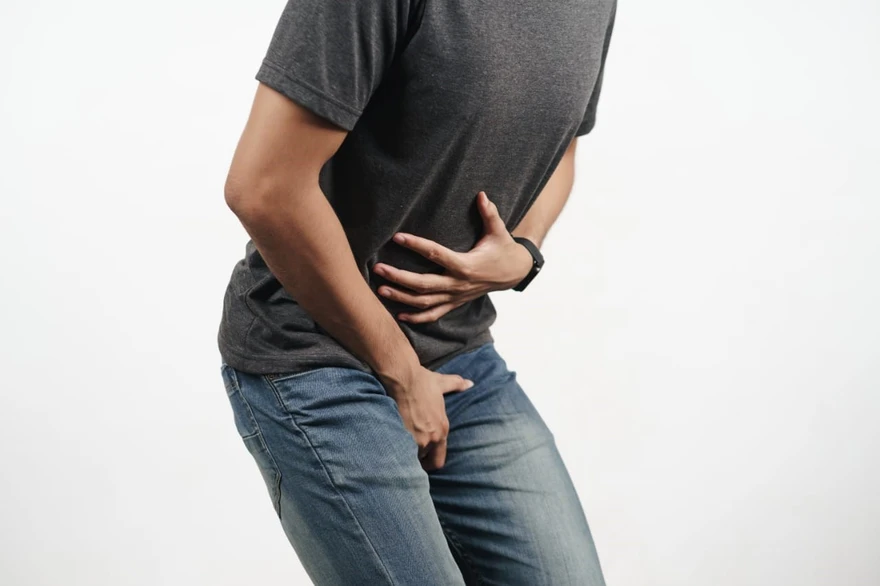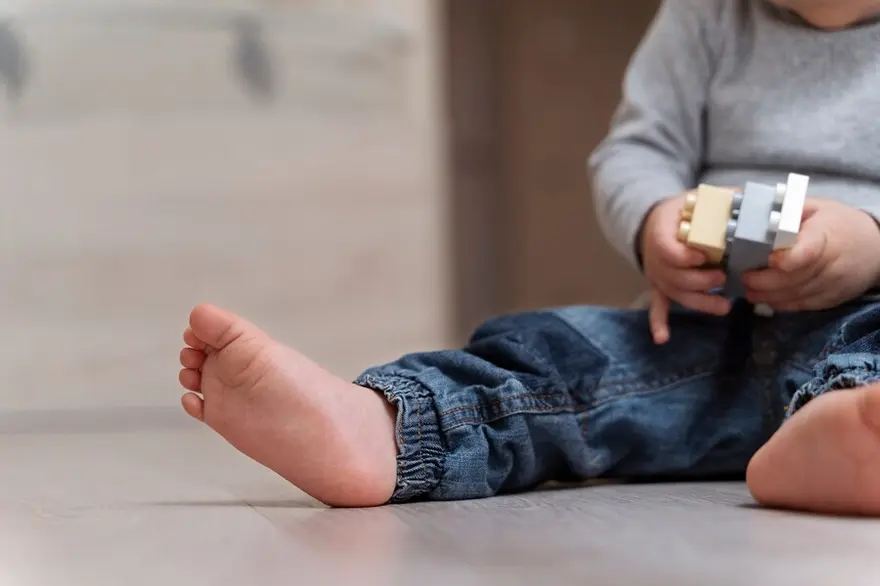Preventive Healthcare
Understanding Testicular Torsion: Symptoms, Treatment and Diagnosis
1295 Views
0

Introduction
Testicular torsion is a condition that could be more serious than you think. Ignoring these risks can result in the loss of the affected testicle. This blog will help you identify the symptoms of testicular torsion and stress on the requirement of prompt medical attention. Understanding these signs can make the difference between maintaining your reproductive health and the need for testicular torsion surgery. Keep reading to find out more.
What Is Testicular Torsion?
Testicular torsion occurs when one of the testicles rotates, twisting the spermatic cord, which supplies blood to the testicle. This sudden twisting cuts off blood flow to the testicle, causing a severe pain and swelling. Tis lack of blood flow can cause a tissue damage and even loss of a testicle.
What Are The Symptoms Of Testicular Torsion?
Given below are common testicular torsion symptoms:
- You may experience abrupt and intense pain in your groin or lower abdomen during testicular torsion, often without any apparent cause or injury.
- Your scrotum swelling may occur, and you may notice an increased tenderness or sensitivity in the affected area.
- Testicular torsion affected testicle may appear higher than normal or be positioned at an abnormal angle.
- The scrotum skin may become red or inflamed, indicating a possible tissue damage due to testicular torsion.
- Some people may also experience testicular torsion symptoms such as nausea or vomiting, usually due to severe pain.
- Difficulty in urinating
- Although testicular pain may be severe initially, the pain may subside temporarily as the testicular torsion resolves on its own. However, this does not mean that the problem has disappeared.
What Triggers Testicular Torsion?
Understanding about the triggers of testicular torsion can help you to prevent this painful condition.
Here are the potential testicular torsion causes:
- Physical Activity: Engaging in a strenuous physical activity or sports, especially those involving sudden movements or trauma in the groin area, may increase the risk of testicular torsion.
- Sleeping Position: Sleeping in certain positions, particularly with your legs tightly crossed or in a foetal position, can accidentally twist the spermatic cord, leading to a testicular torsion.
- Anatomical Factors: Some individuals are born with a predisposition to testicular torsion due to anatomical factors such as a higher-than-usual attachment of the testicles within the scrotum, making it more prone to twisting.
- Previous torsion: Even if you have previously suffered from the testicular torsion and it was successfully treated, you may have a greater risk to have the testicular torsion again in the future.
What Are The Complications Of Testicular Torsion?
Possible complications of testicular torsion may include:
- Loss of testicle
- Reduced fertility
- Risk of infection
- Reduced exocrine and endocrine function in males
- Chronic pain
- Cosmetic deformity
How Is Testicular Torsion Diagnosed?
The doctor will perform a physical examination to diagnose the reasons for testicular pain and swelling. Imaging tests can also be used to confirm the diagnosis of testicular torsion as well as to evaluate the blood flow to the testicles.
What Tests Will Be Done To Diagnose Testicular Torsion?
To diagnose testicular torsion, several tests may be performed identify testicular torsion causes :
- Physical Examination: Through a physical exam your doctor check for testicular torsion symptoms, such as severe pain, swelling, and changes in the position of the testicles.
- Ultrasound: This imaging test uses sound waves to create pictures of the scrotum and its contents. This also helps to assess the blood flow to the testicles, which is very important in the diagnosis of testicular torsion.
- Doppler ultrasound: This test provides a detailed information about the blood flow within the testicle which helps in confirm to diagnose testicular torsion.
- Blood Tests: Blood tests may be conducted to check for signs of infection or other abnormalities that could indicate testicular torsion.
How Is Testicular Torsion Treated?
Surgery is the most commonly prescribed method testicular torsion treatment. However, in some cases, manual de-torsion as well as painkillers may also be suggested as a short-term option for pain relief.
What Treatments Are Available For Testicular Torsion?
Given below are the available testicular torsion treatment options:
- Surgery (Orchiopexy): This is the primary method of treatment for testicular torsion. During orchiopexy, the surgeon untwists the spermatic cord then secures your testicles in place with stitches (sutures) to prevent future twisting. Testicular torsion surgery should be performed immediately.
- Manual De-torsion: In some cases, if surgery isn't immediately possible, your doctor may try manual de-torsion. This involves manually rotating the testicle back into its normal position and temporarily restoring blood flow. However, this is not a definitive treatment for testicular torsion, so surgery should be performed as soon as possible.
- Pain Management: Your doctor may prescribe pain medications to reduce the discomfort caused by testicular torsion. Over-the-counter pain relievers may also be helpful. However, it is important not to depend solely only on medicine for testicular pain.
How soon after testicular torsion surgery will I feel better?
After a testicular torsion surgery, you may experience an immediate relief from severe pain. However, it is normal to feel discomfort or soreness in the surgical area for a few days after surgery. Full recovery from testicular torsion usually takes about 1 to 2 weeks, during which time you should carefully follow your doctor's post-operative instructions, including resting, avoiding strenuous activity, and taking any prescribed medications. While individual experiences with testicular torsion may vary, most people find that symptoms of testicular torsion steadily improve within a few days after surgery, with a gradual return to normal activities as healing progresses.
What can I expect if I have testicular torsion?
If you receive prompt treatment for testicular torsion (within six hours) you can expect the prognosis to be positive. However, if blood flow to the testicle is compromised for over six hours, it may lose functionality. In such cases, surgical removal of your testicle may be necessary.
When to see a doctor?
Typically, you should schedule a follow-up appointment within a week after testicular torsion surgery. However, if you experience any concerning symptoms or complications, such as persistent pain, swelling, fever, or bleeding around incision sites, you should seek medical attention immediately, regardless of whether your follow-up appointment is scheduled. Your doctor will monitor your recovery and ensure that you're healing properly from testicular torsion, so don't hesitate to reach out if you have any concerns.
Conclusion
In conclusion, recognizing the symptoms of testicular torsion and seeking prompt medical care are vital for preserving testicular health. Timely diagnosis and treatment can prevent complications such as testicular loss and infertility. Remember, don't ignore sudden groin pain and act swiftly to protect your reproductive well-being. You should also get a quick blood test done for the diagnosis of any infection that might develop as a complication of testicular torsion. For this, you can trust Metropolis Healthcare because of their reliable and timely reports that are approved by the best doctors across the country. Metropolis Healthcare is one of the leading names in pathology and diagnostic services with expert phlebotomists and state-of-the-art laboratories. Book a test today!













1701259759.webp)









 WhatsApp
WhatsApp